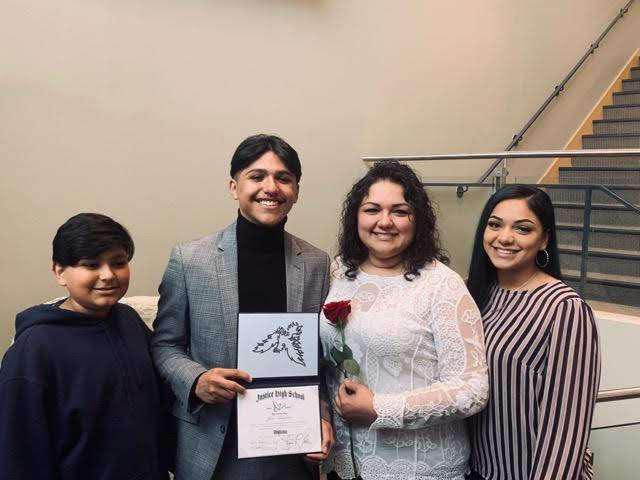
Alma always had a backup plan. It was something she learned after living through an abusive relationship. If things went badly, she knew exactly what she had to do to make sure her three children were safe and cared for. But after Alma remarried, she let her guard down — and learned the hard way that things don’t always go the way you hope they will.
After her second divorce, Alma had trouble making ends meet despite having a steady, full-time job in healthcare. She was still living in a mobile home with her ex-husband and their children when the sewage malfunctioned. The water became unsafe to drink or shower in, yet they had no emergency savings for the repairs. She knew they needed to get out, but she didn’t have the money for a deposit and worried about how she would pay for housing for her family on her own.
When Alma learned she had been accepted into EFAA’s housing program, the only word she could use to describe how she felt was relief. Relief to finally have a home where she could live
independently, her children could be comfortable in their own home, and they could begin to heal and move forward. The support she received from her case managers while at EFAA only made her time here even more beneficial, “Everyone’s really friendly and welcoming … you don’t feel judged, I felt like family,” said Alma.
During her stay in EFAA’s Louisville housing, Alma was connected to a plethora of local resources to strengthen her personal safety-net. She received food and gas assistance, and support with financial management so that she could focus on building her savings. Her kids were given summer passes to the YMCA so that she could continue working while her kids were out of school, and EFAA paid the fees for her youngest son to play football. EFAA even helped her teenage son get his car repaired — the same car he would take with him to start college at Colorado State University
last fall.
This isn’t an unfamiliar story. Many families coming to EFAA are already struggling to make ends meet on insufficient wages. A divorce or an unforeseen emergency — or both in Alma’s case — can be all it takes for a family to lose their economic stability. For Alma to support her family without any kind of assistance, she would have needed to earn about $70,000 a year, or $33 per hour. Anything less than that wouldn’t be enough to cover basic necessities, let alone save for emergencies. Luckily, in these scenarios, EFAA can step up to help.
“(EFAA) gave me hope that there’s a light at the end of the tunnel, because it was really looking dark,” said Alma. “It’s crazy how being a single parent, you feel like there is no hope. But if you just reach out, there are a lot of people who can help.”

